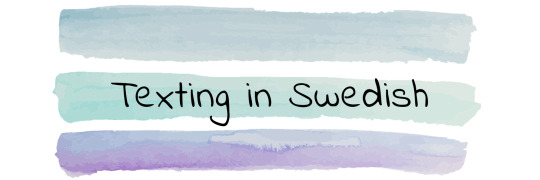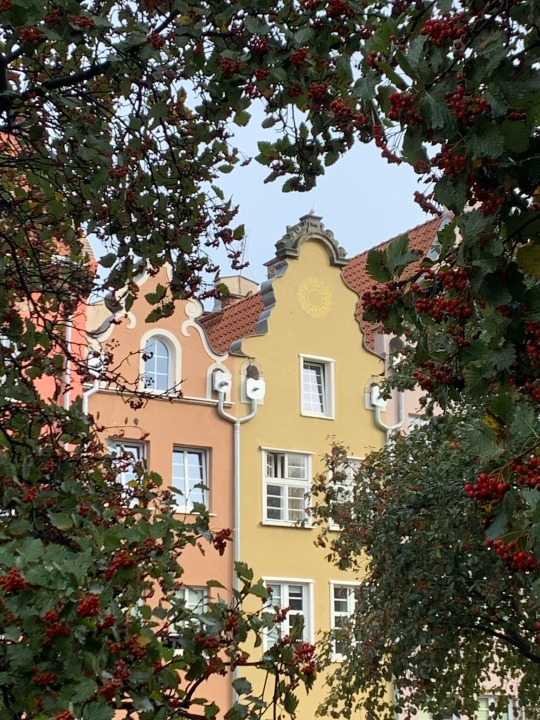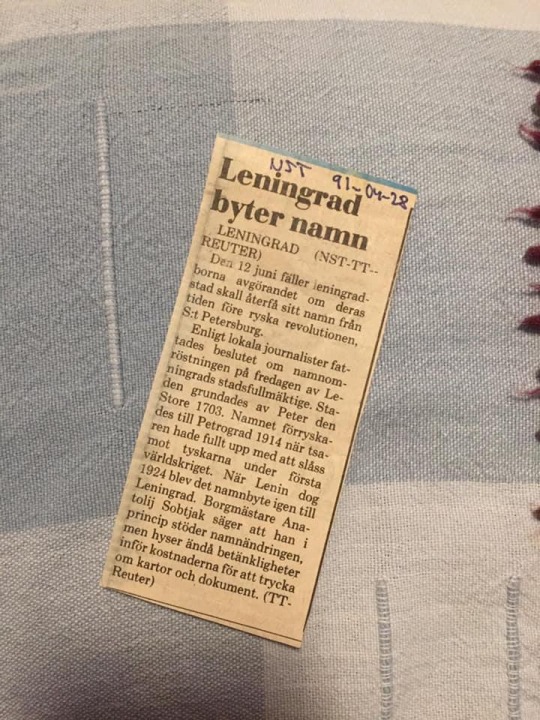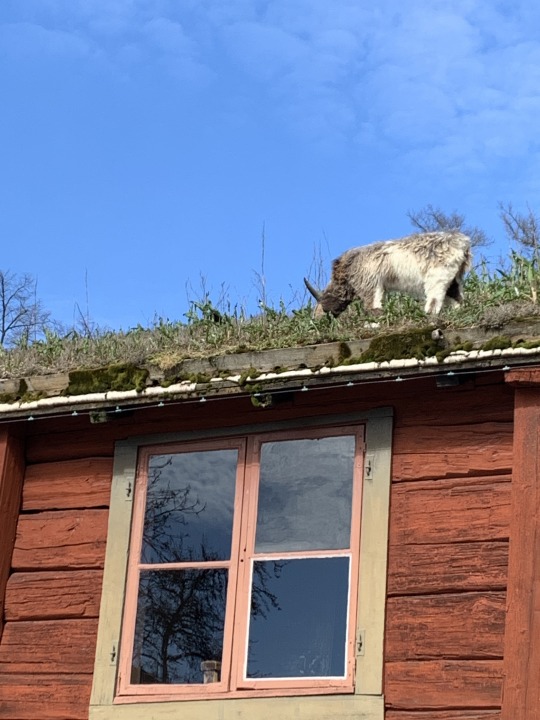Text
Do you know that Swedish is mostly very informal language nowadays?🇸🇪
In the past, Swedish made frequent use of honorifics such as herr, fru and fröken (similar to words like “Mr”, “Mrs” and “Miss” in English) when people addressed each other formally. Furthermore, Swedish also made a distinction between a formal “you” (Ni) and a familiar “you” (du) when addressing another person. This distinction no longer exists in English, but those who speak German or French are probably somewhat familiar with the German Sie and du, and the French vous and tu.
In Sweden, this usage changed during the late 1960s and the early 1970s, when the so called du-reformen (“the you reform”) began. This change saw the Swedish speakers gradually moving away from the formal words and honorifics and beginning using the familiar du (“you”) in almost every situation, regardless of the speakers’ relationship, profession, social status, age, gender, etc.
This change spread not only within the Swedish language, but also within Swedish society itself, eventually leading to a significant reduction in the number of formality registers, even for government officials.
The you reform has led to an interesting effect within the field of professional translation into Swedish. Clients often give long and detailed instructions on the formal register they want their texts to have in the target language. While this is a major concern for many of the world’s languages, it’s no big issue for us Swedish translators – there are barely any registers at all in Swedish! Sometimes, clients want us to update past jobs as the instructions they originally gave us used the wrong register. We always tell them they can keep the original Swedish translation – it works for any register!
It should however be noted that this “you reform” was never as prominent for the Swedish spoken in Finland as it was for the Swedish spoken in Sweden. Although Swedish speakers in Finland were aware of the you reform in Sweden, the habit of addressing every person with “du” regardless of social status never established itself to the same extent in Finland. Although some people began addressing others with “du”, addressing people with “Ni” was common and well accepted for many decades, even well into the new millennium. In fact, Finnish government agencies didn’t abolish the use of “Ni” in official documents until 2014!
192 notes
·
View notes
Text
😍😘🤤
your 3rd, 6th, and 9th most recent emojis describe how your september will go
25K notes
·
View notes
Text
Texting in Swedish
(Possibly part one)
Hej! Here’s a post on Swedish texting language. I compiled a list of common Swedish texting language. I’ve also included some example sentences and a little extra about verbs at the end. Hope you like this post, and remember to take care of yourselves!🌸✨

{Slang | In Swedish | In English}
D | Det | It
De | Det | It
E/Ä | Är | Am/Are/Is (People from north tend to use E and people further south Ä, but it also depends on the person)
Å/O | Och | And (Similarly, people from north tend to use Å and people further south O, but also depends on the person)
Å | Att | To (as in ”to run”, ”I like to read”)
Ja | Jag | I
Jg | Jag | I
Mkt | Mycket | A lot
Vrf | Varför | Why
Oxå | Också | Also, Too
Ne/Nä | Nej | No
Oke | Okej | Okay
Ke | Okej | Okay
Oki | Okej | Okay
Dd | Du då | What about you
Durå | Du då | What about you
Va | Vad | What
Va | Var | Was/Were
Va | Vara | To be
Ba | Bara | Only; Like
Lxm | Liksom | Like
Asså | Alltså | Like (There’s three ways to say ”like” in Swedish. Someone made a good post explaining it but I can’t find it. Comment if you know which one I’m talking about, tack!☺️)
Haru | Har du | Have you
Vare | Var det | Was it
Hne | Henne | Her
Hnm | Honom | Him
Aa | Ja | Yes
Tbx | Tillbaka | Back (as in ”Come back!” or ”I’ll come back”)
Img | Imorgon | Tomorrow
It | Inte | Not
Int | Inte | Not
Nt | Inte | Not
Dom | De, Dem | They, Them (Can mean both)
Ngn | Någon | Someone
Ngt | Något | Something
Venne | (Jag) vet inte | (I) don’t know
Vne | (Jag) vet inte | (I) don’t know
Knsk | Kanske | Maybe
Ksk | Kanske | Maybe
Kmr | Kommer | Am/Is/Are coming; Will
Mst | Måste | Has to/Have to
Äru | Är du | Are you
Example sentences
D e svårt. | Det är svårt. | It is hard/difficult.
D ä nt svårt. | Det är inte svårt. | It is not hard/difficult.
Haru sett hne? | Har du sett hne? | Have you seen her?
Aa, ja såg hne. | Ja, jag såg henne. | Yes, I saw her.
Ja e oxå astrött. | Jag är också astrött. | I am also dead tired.
Vrf nt? | Varför inte? | Why not?
Ja älskar hnm så mkt!! | Jag älskar honom så mycket! | I love him so much!
Jg kmr å äta först. | Jag kommer att äta först. | I will eat first.
Extra notes on verbs
Du and den/det often attach to the verb in texting. For example, ”var den bra?” (was it good?) becomes ”varen bra?”. This only happens when the verb comes before the pronoun, so in questions, for example.
Here are some examples:
Har du —> Haru (Have you)
Har den —> Haren (Has it)
Har det —> Hare (Has it)
Var du —> Varu (Were you)
Var den —> Varen (Was it)
Var det —> Vare (Was it)
Är du —> Äru (Are you)
Är den —> Ären (Is it)
Är det —> Äre (Is it)
Kommer du ㅡ> Kommeru (Are you coming; Will you)
Kommer den —> Kommeren (Is it coming; Will it)
Kommer det —> Kommere (Is it coming; Will it)
*Note how the T disappears from ”det” when shortening it.
More example sentences.
När kommeru? | När kommer du? | When are you coming?
Tyckeru om den? | Tycker du om den? | Do you like it?
Vrf äru arg? | Varför är du arg? | Why are you angry?
306 notes
·
View notes





















